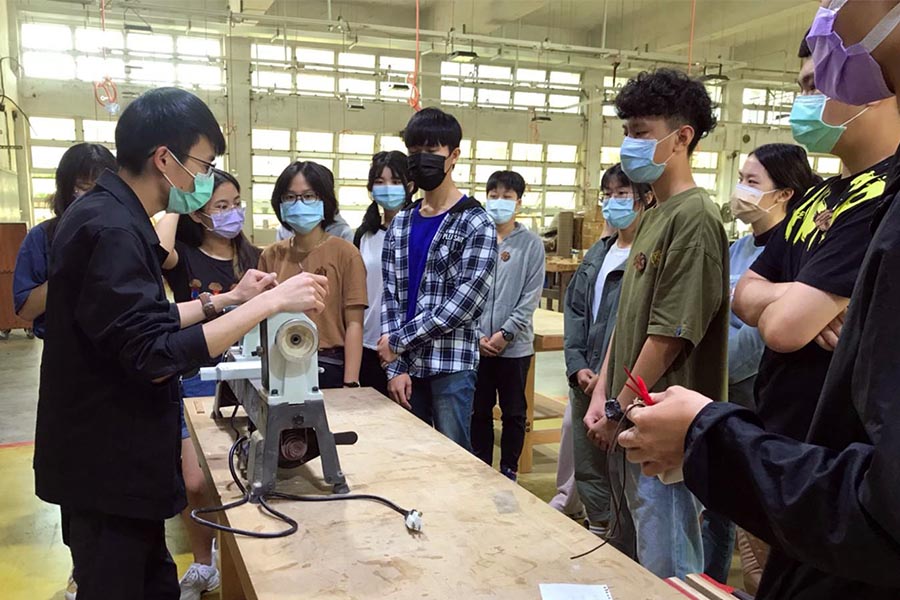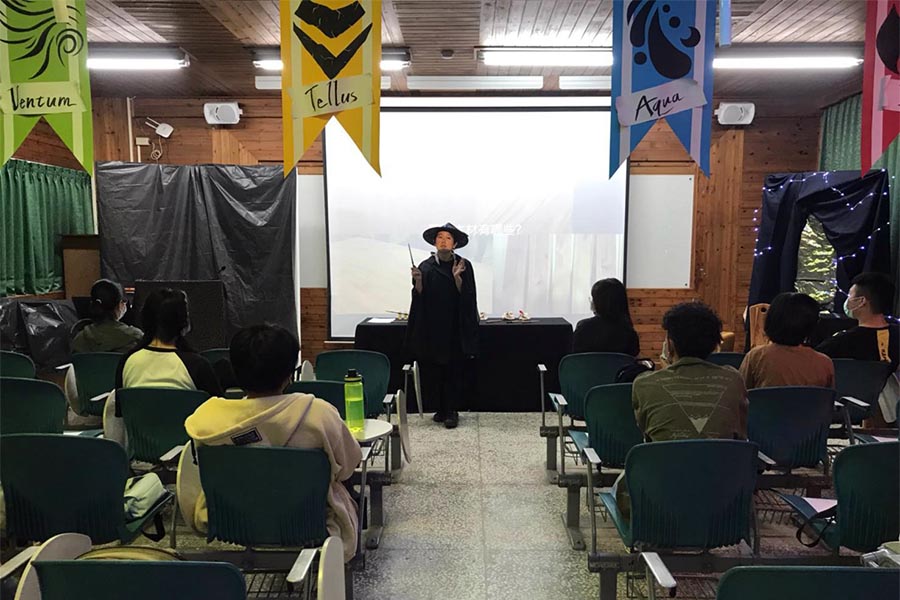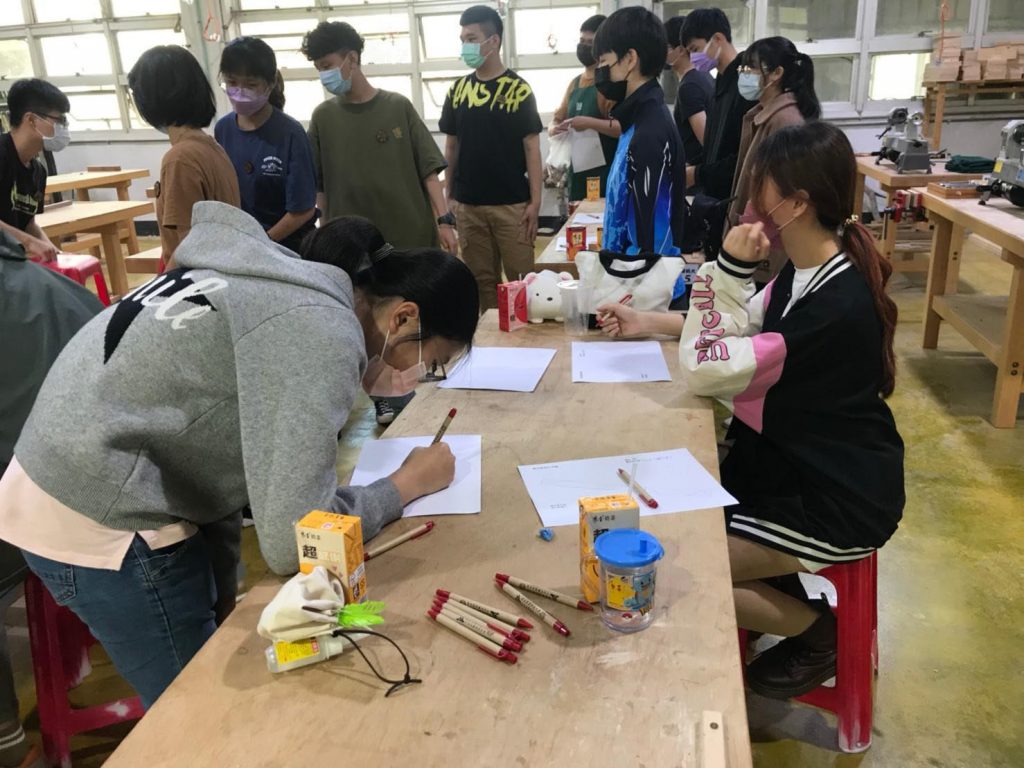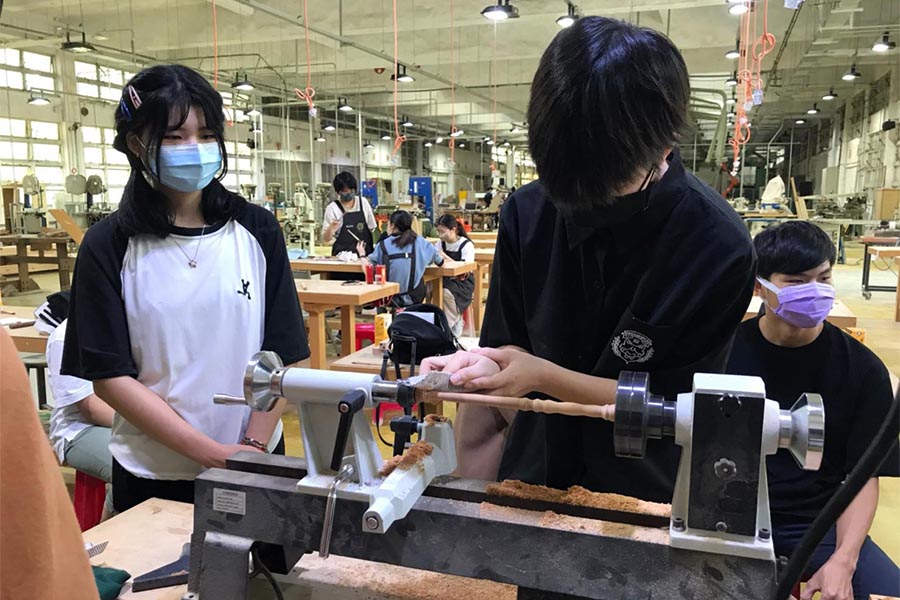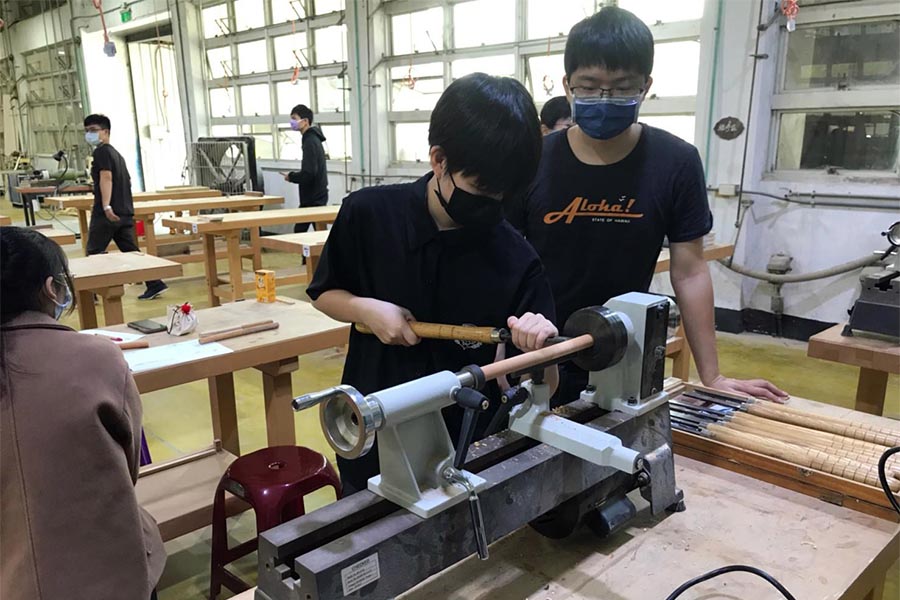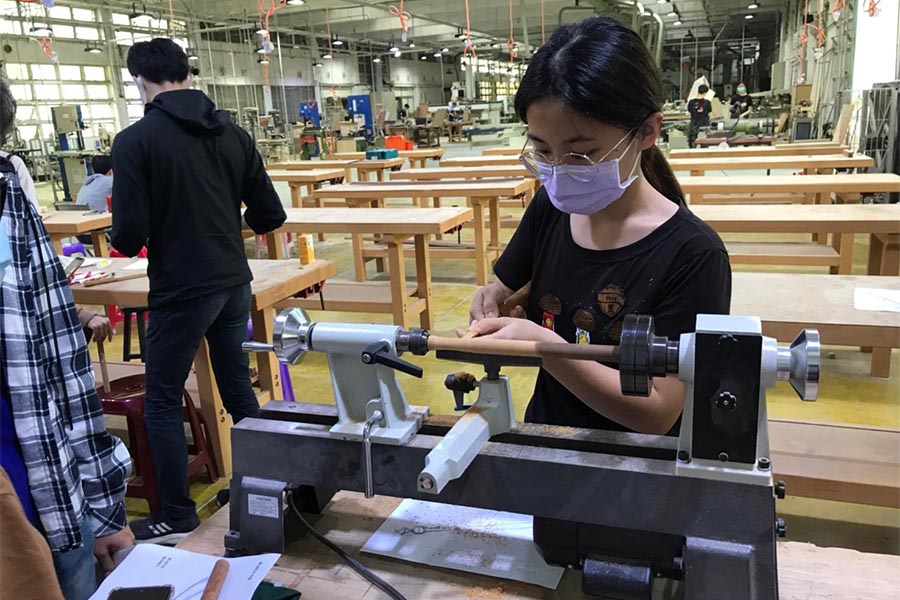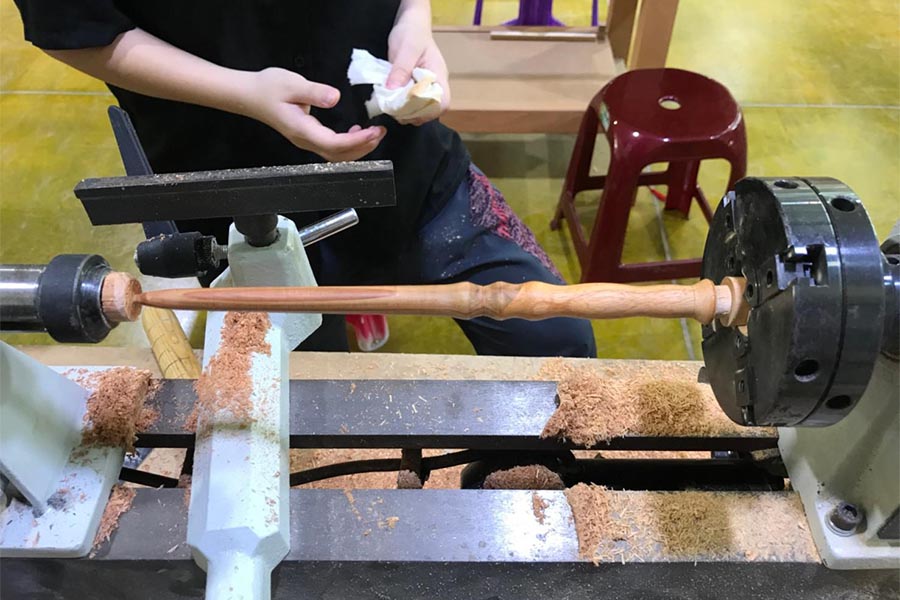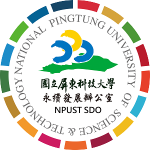Associate Professor Way Long of the NPUST Department of Wood Science and Design, and researcher and lecturer, Chen-Hui Chen, have jointly created Taiwan’s very own “Woodwarts” and put on the “Magic Wand Making Experience Camp” for a group of vocational high school students to teach them about the use of domestic materials in woodworking.
The camp was held on March 5th at the university’s wood processing factory with a total of 18 students from Feng-shan Senior Commercial and Industrial Vocational School and Pingtung Girls’ High School participating.
The activities included “Environmental Education”, which covered domestic timber, recycling of surplus materials, and the development of Taiwan’s wood industry; “Creative Imagination”, for teamwork training, guidance in the creative processes, and sharing; “Practical Operations”, which focused on selecting wood and making observations by sight, touch, and smell, and also went into using lathes, carving knives and other tools to create personal “magic wands”.
Professor Way Long expressed that “the use of domestically produced wood is a topic that every country must face—and how to design a diverse form of development that is suitable to the location and the material. We hope that through this creative activity we will be able to train the vocational high school students in multi-faceted application.” Chen-Hui Chen, who is a researcher and lecturer at the university, expressed that “there is a certain difficulty when it comes to using domestic wood. Because of the anterograde texture and grains, everyone avoids it. But through this activity, we are teaching the high school students about the special qualities of domestic wood, and ways to use of the wood to enhance its value.
The wood used in the “Magic Wand Making Experience Camp” is left over material from a manmade forest in the Pingtung area. Connecting to the local natural environment, through environmental education is also the core idea behind the activity. Students learn basic woodworking techniques through sight, sound, scent and touch. As they observe woods texture and processing methods, they get a better understanding of domestic wood and the development of Taiwan’s wood industry. Hopes are to share the technology and knowledge of the Department of Wood Science and Design with the students and provide them with more options in the future.




